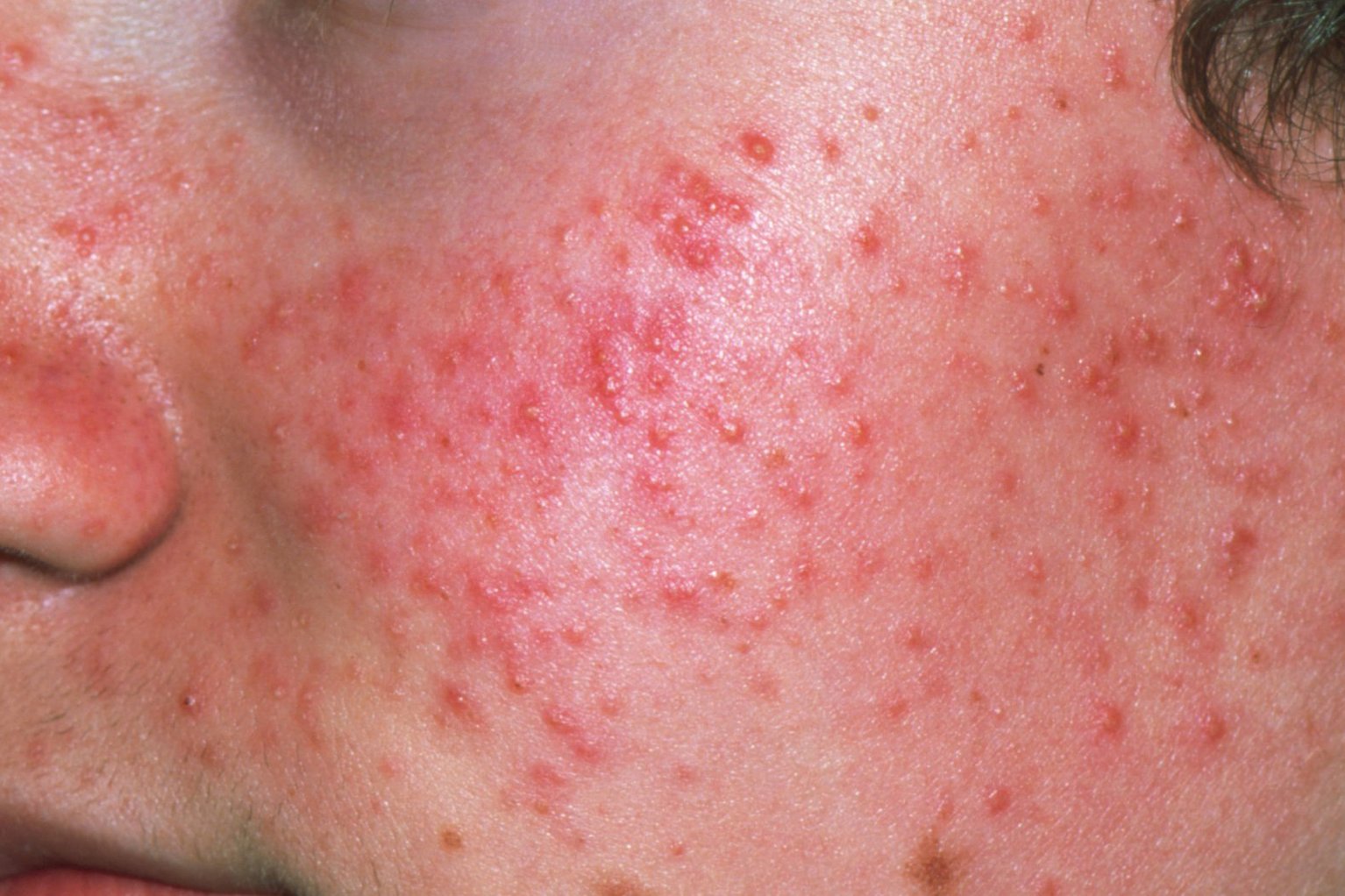Acne: Causes & Treatment
What causes acne?
Acne is a common skin condition that is primarily caused by a combination of the following factors:
- Hormones: Hormonal changes, particularly during puberty, pregnancy, and menstrual cycles, can increase the production of sebum (oil) by the sebaceous glands in the skin. This excess sebum can clog pores and lead to acne.
- Excess oil production: The sebaceous glands in the skin produce sebum to keep the skin lubricated. However, when these glands become overactive, excessive sebum can accumulate and clog pores.
- Clogged pores: Dead skin cells can accumulate and block hair follicles, trapping sebum and bacteria inside, leading to the formation of pimples, blackheads, and whiteheads.
- Bacteria: A specific type of bacteria called Propionibacterium acnes (P. acnes) naturally lives on the skin. When excess sebum and dead skin cells clog pores, P. acnes can multiply and contribute to the inflammatory response that causes acne lesions.
- Inflammation: The immune system’s response to the clogged pores and bacteria can trigger inflammation, leading to the formation of papules, pustules, and cystic lesions.
Other factors that can contribute to or aggravate acne include:
- Hormonal imbalances: Conditions like polycystic ovary syndrome (PCOS) or hormonal fluctuations during puberty, menstrual cycles, or pregnancy can trigger or worsen acne.
- Genetics: Some individuals have a genetic predisposition to developing acne.
- Certain medications: Drugs like corticosteroids, lithium, and anabolic steroids can increase the risk of acne.
- Stress: High levels of stress can worsen acne by increasing the production of hormones that stimulate oil glands.
- Friction and pressure: Tight clothing, backpacks, helmets, or other sources of friction or pressure on the skin can exacerbate acne.
- Diet: While the direct link is not fully established, some studies suggest that a diet high in refined carbohydrates and dairy products may worsen acne in some individuals.
Acne can affect people of all ages, but it is most common during adolescence due to hormonal changes associated with puberty. Proper skin care, topical medications, and in some cases, oral medications or hormonal therapy can help manage and treat acne.
How is acne treated?
There are several treatment options available for acne, ranging from over-the-counter products to prescription medications and therapies. The choice of treatment depends on the severity of the acne, the individual’s age, and the underlying causes.
Over-the-counter (OTC) treatments:
- Benzoyl peroxide: This is a topical medication that kills acne-causing bacteria and helps unclog pores.
- Salicylic acid: This is a beta-hydroxy acid that helps unclog pores and remove dead skin cells.
- Sulfur: Topical sulfur can help dry out excess oil and remove dead skin cells.
- Retinoids: OTC retinoids, such as adapalene, help unclog pores and promote cell turnover.
Prescription treatments:
- Topical retinoids: These vitamin A-derived medications, such as tretinoin (Retin-A), are more potent versions of OTC retinoids and are effective in preventing and treating acne.
- Antibiotics: Topical or oral antibiotics, such as clindamycin or doxycycline, can help kill acne-causing bacteria and reduce inflammation.
- Oral contraceptives: Birth control pills containing estrogen and progestin can help regulate hormonal imbalances that contribute to acne in women.
- Anti-androgen medications: Medications like spironolactone can help block the effects of male hormones (androgens) that stimulate oil production.
- Isotretinoin (Accutane): This powerful oral medication is reserved for severe, treatment-resistant cases of acne. It reduces oil production and helps unclog pores, but has potential side effects and must be closely monitored.
Other treatments:
- Chemical peels: Peels containing alpha-hydroxy acids or beta-hydroxy acids can help remove dead skin cells and unclog pores.
- Extraction: A dermatologist can manually extract blackheads and whiteheads using specialized tools.
- Light therapy: Certain types of light, such as blue light or intense pulsed light (IPL), can kill acne-causing bacteria and reduce inflammation.
In addition to medical treatments, lifestyle changes such as maintaining good skin hygiene, avoiding picking or squeezing pimples, managing stress, and following a balanced diet can also help in managing acne.
It’s important to consult a dermatologist for proper diagnosis and treatment, especially for severe or persistent acne, as they can recommend the most appropriate treatment plan based on the individual’s specific needs and condition.




